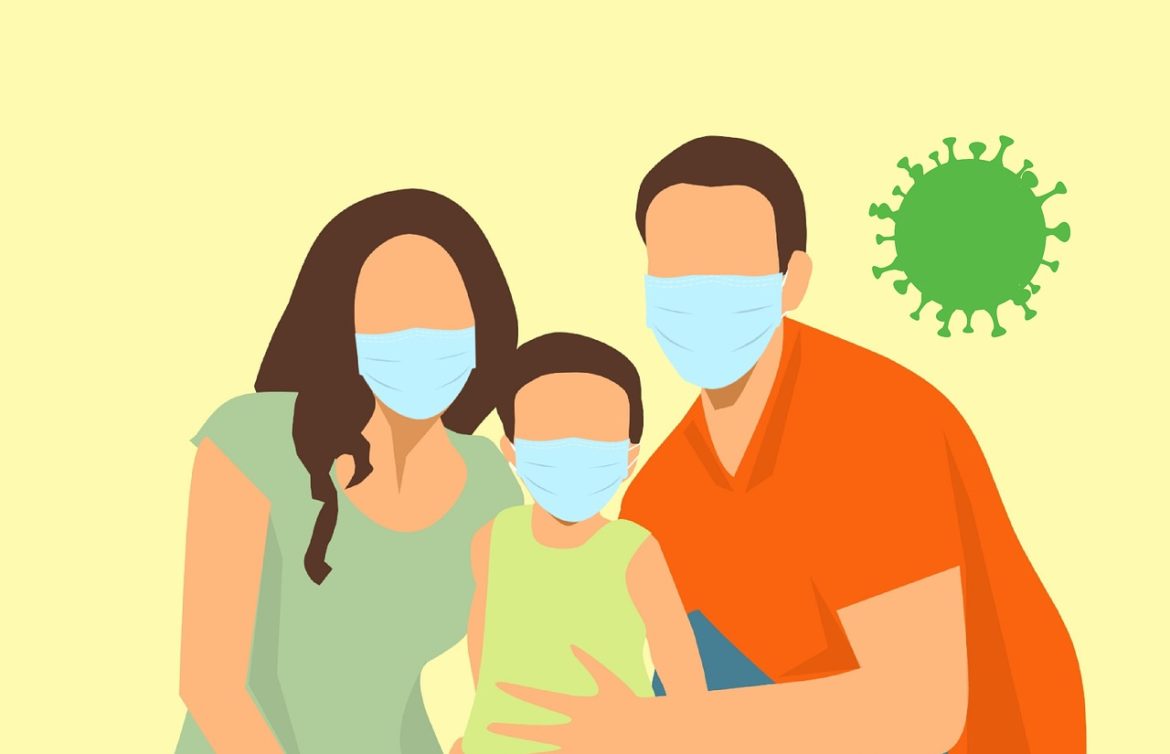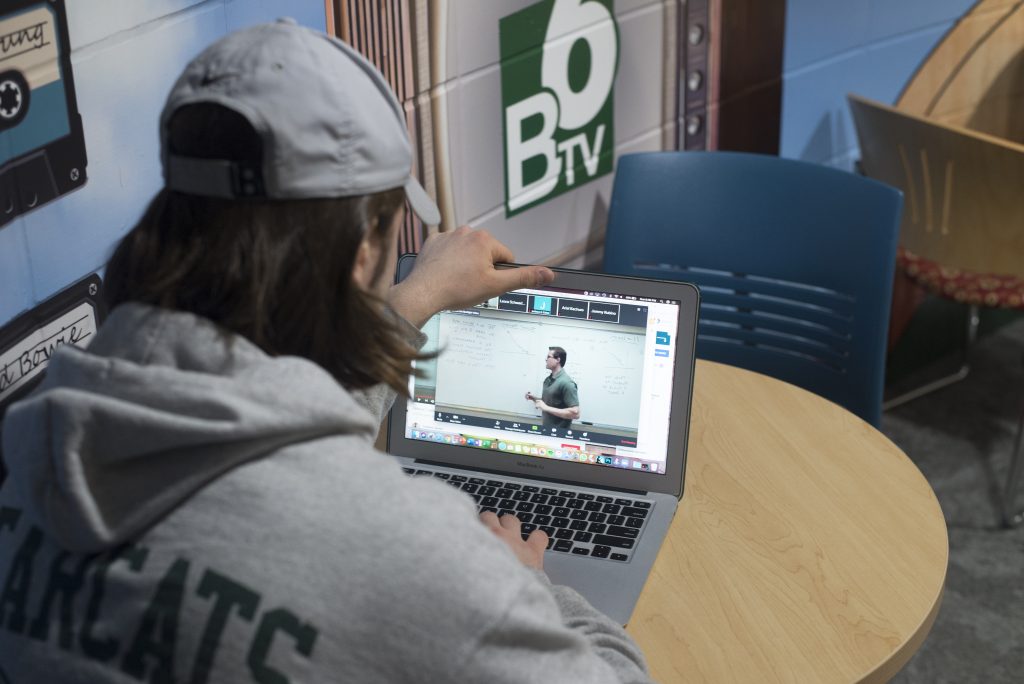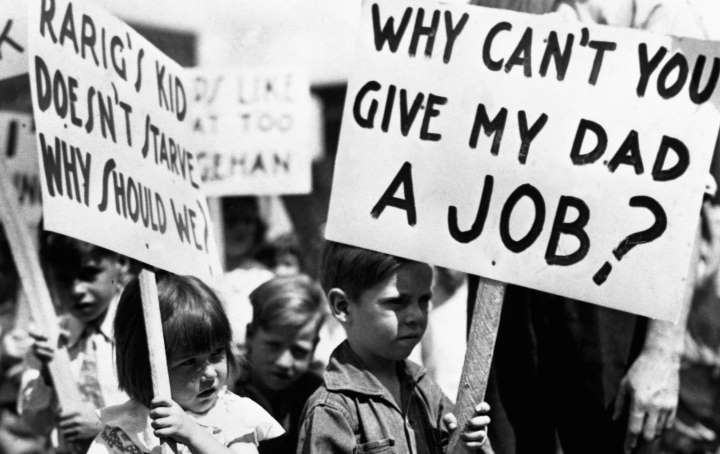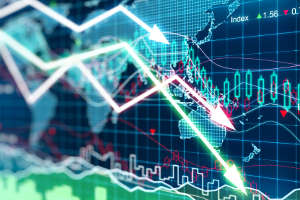By Arun Gupta (March 23, 2020)
I wrote this days ago saying an economic contraction of 10% or more and an unemployment rate of 20%. Only now are investment banks worth hundreds of billions of dollars considering we are in a depression. I haven’t seen anyone acknowledge what is obvious: The same economic denialism is going on now as in 2008. Then, as now, we were told, “No recession.” Then “soft landing.” Then “V-shaped downturn and recovery.” That’s the current line from the Nazi Carnival Barker. Except it’s delusional at best, and a flagrant lie at worst. We are looking at months of economic inactivity and tens of millions unemployed.
Welcome to the Great Pandemic Depression.
If you are feeling stunned and disoriented by what is happening with the Great Pandemic, that’s because we have become embroiled in a war in just days.
We may be looking at a death toll in the millions just in the United States. We are probably looking at an economic depression. We are certainly looking at a disruption and reordering of society and social relations in a way that hasn’t happened since World War Two. That had a profound effect by with 10% of the population being shipped off to war, re-tooling the entire economy, and upending social relations, particularly around gender and race, in ways that rippled through society for decades. We don’t know if this will be on that scale, but we are now in a war society and economy with a malignant narcissist in command.
In this post, I want to focus on the economy. The economic fallout will be as bad as the Great Recession, and we may be headed for a depression. A recession is defined as two out of three quarters of economic contraction, but there is no accepted definition for a depression. So I define a depression as an economic contraction of more than 10% and a peak unemployment rate of 20% or more. This article is informative on the economic impact, but like virtually all reporting on the pandemic, it is behind the curve.
Let’s get ahead of the curve. It is likely many if not most states and big cities will shut down all schools, bars, and restaurants this month. Even if many states, particularly reactionary Red States, don’t enact blanket quarantines, it’s likely a majority of the population will be living under state-imposed self-isolation within weeks as the big states and municipalities do this.
Even before such drastic measures, the airline, hospitality, music, sports, film and TV industry, the entire travel and leisure industry, were trapped between shutting down and collapsing. Global supply chains will be severely disrupted with most of the advanced economies shutting down as well.
Meanwhile, China’s attempts to get its economy up and running again were faltering even before other industrialized countries were hit hard.
There will both be a huge drop in consumption for all but basic goods — food, water, medicine, medical supplies, stay-at-home entertainment — and a huge drop in demand as tens of millions of workers are idled. This will become a feedback loop. People will hoard savings as they hoard toilet paper because they are unsure of how long they need to ride out the storm and hold onto savings, putting off all unnecessary purchases. Consumption will plummet for non-emergency goods, rippling through the supply chain from extraction to manufacturing to sales to shipping. We are talking apparel, electronics, furniture, cars and trucks, consumer durable goods (apart from things like freezers that have all sold out).
One example. In February, car sales in China were at 21% of levels the year before. Let me repeat that. China recorded only one-fifth of the car sales from a year ago. Their techno-authoritarian state
Auto manufacturing, parts, dealers, repairs, and so are about a $1 trillion industry in the U.S., nearly 5% of the nation’s GDP. The energy sector has crashed as well, anticipating an economic free-fall and because of the price war between the Saudis and Russia. Trump has been acting as if everything is great because gas will be cheap, while ignoring the carnage, but even by his murderous logic low gas prices are bad for the economy. High oil prices are more beneficial to the U.S. economy because of the domestic oil and gas production boom that has become a significant employer throughout the supply chain, from drilling and equipment to chemicals, transport, and storage. (I am not saying fracking is good; it should be banned. But this is another economic blow).
Auto insurance accident claims have already declined significantly, indicating people are driving much less. If they aren’t going to work, kids aren’t going to school, they aren’t leaving the house, and huge amounts of wealth are being destroyed in the stock market crash, how likely is it people will be buying houses?
So there goes another huge leg of the economy: home construction, home sales, moving, and goods to outfit homes. Then there is the restaurant industry, which employs around 15 million people. Who knows how many might eventually be laid off, but it’s likely to be enormous both from direct closures, self-isolation, social distancing, and knock-on effects of reduced employment and spending.
All of this will ripple through the financial sector, especially in terms of loans and corporate debt. The Fed has unleashed nearly all of its tools, both Zero Interest Rate Policy and Quantitative Easing, but it’s having little effect because it’s not a financial crisis. Interestingly, one former banking regulator, Sheila Blair, says the Fed is not using its tools to shore up entire industries, which she says would help businesses and consumers.
If this wasn’t bad enough, state and local governments will be hard hit by declining sales tax and income tax revenue. So will mass transit systems by declining ridership and revenue. Meanwhile healthcare systems will be overtaxed and may collapse in some areas. Manufacturing will suffer as well as inventories build up. Less production and consumption will also mean less material moving, so warehousing, shipping, and trucking will all be dealt blows.
This is already worry that weaknesses and breaks could eventually appear in food supply chains. What happens if supermarkets become hotbeds of infection? They are likely to given the enormous foot traffic and all the people handling goods. Imagine if workers start coming down sick and others are too afraid to show up to work. This is deeply worrisome for obvious reasons.
And the fact a murderous psychopath is running the show doesn’t provide any comfort.




















